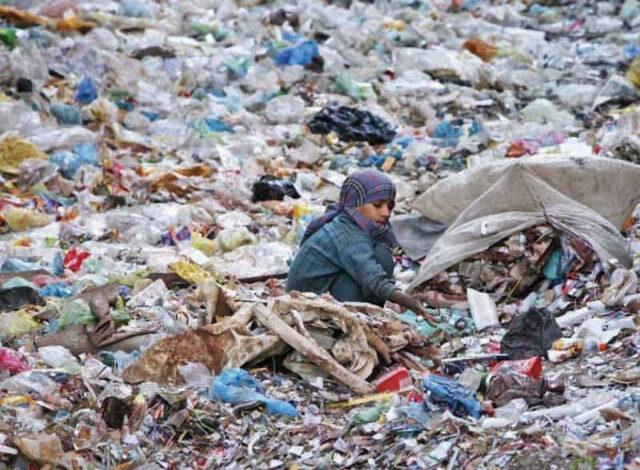The escalating plastic pollution presents an environmental concern.

World Environment Day is celebrated internationally on June 5, with this year’s theme, “Beat Plastic Pollution,” highlighting the escalating catastrophe of plastic waste. Environmental specialists have cautioned that without prompt action, the repercussions of unregulated pollution might be disastrous for both human health and the ecosystem.
In an interview with The Express Tribune, Dr. Amir Alamgir, Assistant Professor of Environmental Studies at the University of Karachi, stated that plastic pollution has become one of the most significant environmental concerns in recent decades. “Plastic products are affordable and readily accessible, promoting their overuse without consideration for their detrimental impacts,” he continued.
Dr. Alamgir emphasized the health risks associated with plastic usage, especially in the hot months. “He stated that storing drinking water in plastic bottles and refrigerating them may release microplastics that infiltrate the human body.” These little particles can significantly harm the respiratory and digestive systems, blood vessels, and other essential organs. Extended exposure may ultimately result in lethal diseases, including cancer.
He cautioned against the prevalent practice of incinerating rubbish, especially plastic waste, which emits hazardous pollutants into the atmosphere. “These gases are inhaled into the lungs and absorbed into the bloodstream, impacting human health in ways that are still being elucidated – yet we recognize they present significant dangers,” he stated.
Karachi, one of the most densely inhabited cities in the nation, is at the epicenter of Pakistan’s environmental crisis. The city produces around 14,712 tons of solid trash per day, with barely 50 percent being sent to dump facilities. The waste is disposed of in open areas, aquatic environments, and roadways, contaminating both air and water sources.
Dr. Alamgir states that 60 percent of Karachi’s solid waste consists of plastic, a significant portion of which is discharged into the Arabian Sea, jeopardizing marine life. “He cautioned that if the prevailing trend persists, Karachi may encounter irreversible ecological degradation within the next 15 years.”